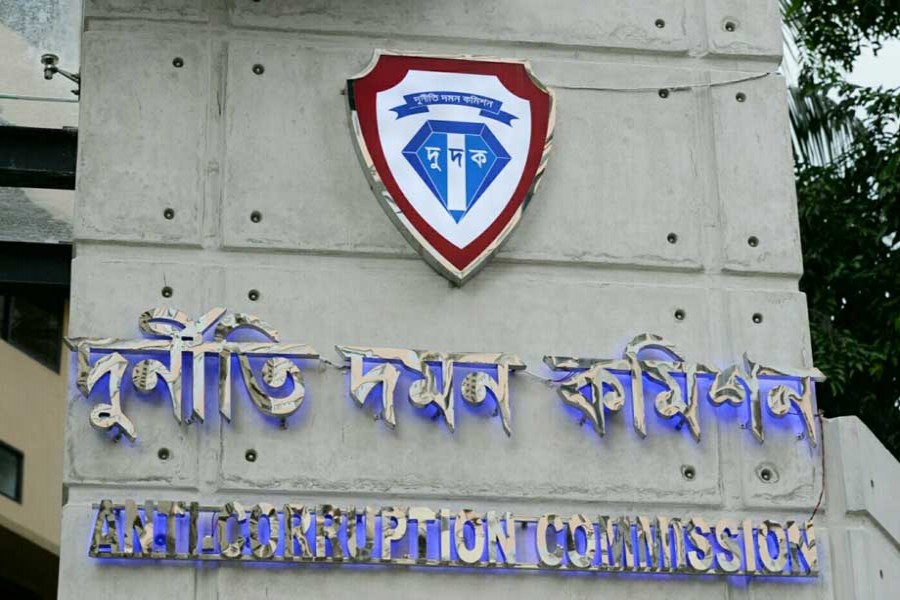
Published :
Updated :

The unceremonious and hurried manner in which the chairman of the anti-corruption commission (ACC) along with two other commissioners resigned their constitutional posts showing personal reasons and left office on Tuesday (October 29) has raised a few eyebrows. For as provided by the section 10 of the Anti-Corruption Commission Act 2004, any member of the ACC wishing to leave his or her job should submit letters of resignation at least one month in advance to the president through the Cabinet Division. Unsurprisingly, their action will only further degrade the state organ's level of performance, which, however, had hardly ever been up to the public's expectation. Interestingly, blaming the immediate-past Hasina-led government for their lack of courage in carrying out their anti-corruption drives effectively in the past, these same ACC high-ups appeared to have swung into action to do their job with new vigour by the third week of last August. In fact, the ACC then informed the press of how it had expanded its net by enlisting some 200 corruption suspects including lawmakers, ministers and others holding high office under the past government. But nothing much was heard about its progress of work.
Notably, on the very day that the ACC high-ups in question resigned, a scheduled meeting between them and the ACC Reform Commission was cancelled. To all appearances, the development prompted their hasty resignations. This is unfortunate and leaves a not-so-enviable precedent for people holding constitutional positions equivalent to those of justices of the Appellate Division or of the High Court. Undeniably, due to their sudden exit, the ACC's work will face challenges as vital steps like investigating allegations of corruption, filing of cases or framing charge-sheets for the purpose would not be possible without a full ACC in place. If anything, the way the holders of the constitutional body left office speaks volumes for why it became a necessary to form an ACC Reform Commission by the incumbent interim government.
Sadly though, since its very inception when ACC was constituted in May 2004 by abolishing its predecessor, the Bureau of Anti-Corruption (BAC), with the high hopes of combating, controlling and preventing corruption, the anti-graft body was never allowed the independence it required to hold the powerful to justice. however, for the brief period that it appeared to have bared its teeth, though with questionable records, during the military-backed caretaker government of 2007-2008, its wings were again clipped by the post-2008 polls Awami League-led government. Through an amendment in January 2011 to the ACC Act 2004, the government made it mandatory for the anti-graft body to obtain prior permission from the government before filing any case against a public servant.
After that the ACC virtually turned into a tool to harass and punish those with whom the highest office of the fallen Hasina-led government could not see eye to eye including especially those in political opposition. Worse yet, most of those holding such constitutional positions, not excepting the ones in ACC, were often found doing the bidding of the powerful in political office not just under duress, but as willing partners. So, it is plain to see how ACC in its present shape has become dysfunctional so far its real mandate is concerned.
Under the circumstances, the nation is pinning its hopes on the ACC Reform Commission headed by the Executive Director of the Transparency International, Bangladesh (TIB), which hopefully would come up with recommendations to form an anti-graft body that can deliver.


 For all latest news, follow The Financial Express Google News channel.
For all latest news, follow The Financial Express Google News channel.